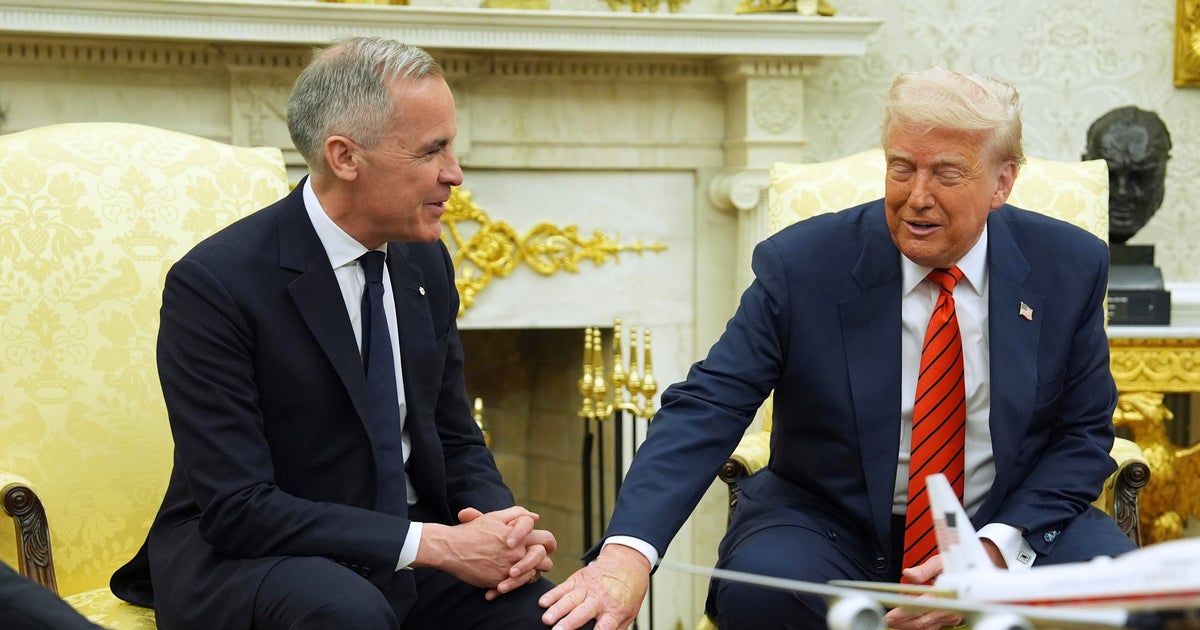In a recent Oval Office meeting, Canadian Prime Minister Mark Carney firmly emphasized to President Donald Trump that Canada will always remain sovereign and is not on the market for purchase. This assertion came right after President Trump described the border between the U.S. and Canada as “artificial” and entertained the notion of Canada merging with the United States to form a “wonderful marriage.”
Despite President Trump’s repeated propositions to acquire Canada—a notion that has always been squarely rejected by Canadian leadership—Tuesday marked the leaders’ first in-person discussion on the matter since Carney’s Liberal Party won the federal election last week. The dynamic and occasionally contentious meeting underscored the ongoing complexities and occasional strains in U.S.-Canada relations, especially in the realms of trade.
President Trump, with his background in real estate development, referred to himself as fundamentally a builder at heart. He poetically noted the aesthetic and strategic advantages of erasing the “artificially drawn line” that demarcates the U.S.-Canadian border, envisioning a single, unified landscape. However, Carney quickly rebuffed this idea, pointing out the permanence of some properties by making an analogy to Buckingham Palace—a place that, like Canada, is steeped in history and not just a mere commodity.
Responding to Trump’s remarks, Carney sternly voiced that while Canada values its relationship with the U.S., it is not and will never be for sale. “We recognize the strength in partnership and what we can build together,” Carney stated, steering the conversation towards constructive collaboration rather than acquisition.
Despite the potential friction, President Trump reassured that his proposal to integrate Canada does not complicate ongoing negotiations on trade or other matters. “No, not at all,” he remarked when asked if Carney’s firm rejection made discussions more challenging, although he maintained a hopeful tone, adding, “But I say, ‘never say never.'”
Prime Minister Carney, affirming his commitment to stand firm and protect Canadian interests amidst trade tensions and discussions on borders, conveyed to reporters that he had requested President Trump to refrain from calling Canada the ‘51st state’. Their conversation also included Carney’s election victory, where Trump jokingly remarked that his opposition might have been the best thing to happen to Carney, illustrating the complex interplay of respect and rivalry in their interactions.
Regarding trade specifics, President Trump made it clear during the meeting that nothing Carney could suggest at the moment would lead to an immediate lifting of U.S. tariffs on Canadian goods, which Carney described as part of a “bigger discussion.” Relations have been particularly strained due to these tariffs and Trump’s annexation comments.
After exiting the White House, Carney spoke to the press at the Canadian embassy, indicating that trade discussions would persist and urging patience until a solid deal was negotiated. He described the ongoing negotiations as “complex” and revolving around a “wide range of issues.” He remained optimistic about continual dialogue, highlighting planned meetings at the upcoming G7 summit in Alberta.
Despite the challenges presented by the U.S. administration’s tariff policies, which Carney criticized for not benefiting American jobs or the economy, he underscored that the substance of their discussions reflected a “healthy” relationship. Trump later echoed this sentiment, labeling their meeting as “very good.”
Looking forward, Carney was adamant about revising Canada’s economic strategies in light of these tariffs and the broader geopolitical climate, as evidenced by his victory speech wherein he proclaimed the end of an era characterized by deep economic and security integration with the U.S., advocating a fundamental reimagining of Canada’s economic landscape.
In a broader context, the meeting also touched on pressing global issues, reinforcing the intricate and indispensable nature of the U.S.-Canada alliance, despite occasional disagreements or misalignments in policy and rhetoric. As discussions continue, both leaders seem to recognize the critical importance of maintaining a robust, mutually beneficial relationship, founded on respect for sovereignty and cooperative engagement on shared challenges.
Conclusively, the meeting between Carney and President Trump, while marked by moments of tension and disagreement, ultimately underscored a mutual commitment to dialogue and collaboration, setting the stage for future negotiations that aim to balance national interests with the strength of partnership.









